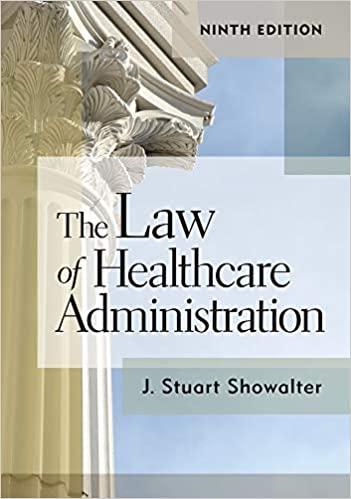We start with the proposition that suicide is not a crime under Montana law. In the aid
Question:
We start with the proposition that suicide is not a crime under Montana law. In the aid in dying situation, the only person who might conceivably be prosecuted for criminal behavior is the physician who prescribes a lethal dose of medication. [Because] the claims of the plaintiff physicians are premised in significant part upon concerns that they could be prosecuted for extending aid in dying, we deem it appropriate to analyze their possible culpability for homicide by examining whether the consent of the patient to his physician’s aid in dying could constitute a statutory defense to a homicide charge against the physician.
The consent statute would shield physicians from homicide liability if, with the patients’ consent, the physicians provide aid in dying to terminally ill, mentally competent adult patients. We first determine whether a statutory consent defense applies to physicians who provide aid in dying and, second, whether patient consent is rendered ineffective . . . because permitting the conduct or resulting harm “is against public policy.”
Section 45-5-102(1), MCA, states that a person commits the offense of deliberate homicide if “the person purposely or knowingly causes the death of another human being . . . .” Section 45-2-211(1), MCA, establishes consent as a defense, stating that the “consent of the victim to conduct charged to constitute an offense or to the result thereof is a defense.” Thus, if the State prosecutes a physician for providing aid in dying to a mentally competent, terminally ill adult patient who consented to such aid, the physician may be shielded from liability pursuant to the consent statute. This consent defense, however, is only effective if none of the statutory exceptions to consent applies. [The law] codifies the four exceptions:
Consent is ineffective if:
(a) it is given by a person who is legally incompetent to authorize the conduct charged to constitute the offense;
(b) it is given by a person who by reason of youth, mental disease or defect, or intoxication is unable to make a reasonable judgment as to the nature or harmfulness of the conduct charged to constitute the offense;
(c) it is induced by force, duress, or deception; or
(d) it is against public policy to permit the conduct or the resulting harm, even though consented to..................
Discussion Questions
1. In a concurring opinion, one of the justices quoted the affidavit of the plaintiff, Robert Baxter, as follows:
I have lived a good and a long life, and have no wish to leave this world prematurely. As death approaches from my disease, however, if my suffering becomes unbearable I want the legal option of being able to die in a peaceful and dignified manner by consuming medication prescribed by my doctor for that purpose. Because it will be my suffering, my life, and my death that will be involved, I seek the right and responsibility to make that critical choice for myself if circumstances lead me to do so. I feel strongly that this intensely personal and private decision should be left to me and my conscience—based on my most deeply held values and beliefs, and after consulting with my family and doctor—and that the government should not have the right to prohibit this choice by criminalizing the aid in dying procedure.
How are you moved by such a statement? To the extent you can imagine it, what would your desires be if you were in a similar situation at life’s end? How would your family and friends feel?
2. In a second concurring opinion, another justice wrote, I join the opinion . . . because the legislature has not plainly stated that assisting suicide is against public policy. This court must not add such a provision by judicial fiat. . . . The citizens of Montana have the right to have their legislature step up to the plate and squarely face the question presented by this case, do their job, and decide just what is the policy of Montana on this issue (354 Mont. at 252, 224 P.3d at 1222–23).
It has been ten years since those words were written. Do you suppose the legislature has responded? Why or why not?
3. The dissenting opinion argued, The prohibition against homicide . . . protects and preserves human life, is the ultimate recognition of human dignity, and is a foundation for modern society, as it has been for millennia past. Based upon this foundation, Anglo-American law . . . has prohibited the enabling of suicide for over 700 years. However, in contradiction to these fundamental principles, the Court concludes that physician-assisted suicide does not violate Montana’s public policy. In doing so, the Court has badly misinterpreted our public policy: assisting suicide has been explicitly and expressly prohibited by Montana law for the past 114 years.
The dissent also pointed out that the Montana Rights of the Terminally Ill Act states that it “does not condone, authorize, or approve mercy killing or euthanasia.”
In your opinion, is the position of the dissenting justice more persuasive than that of the majority and concurring judges? How should one determine what is the “public policy” of the state? Whose job is it to make such a determination?
Step by Step Answer:






